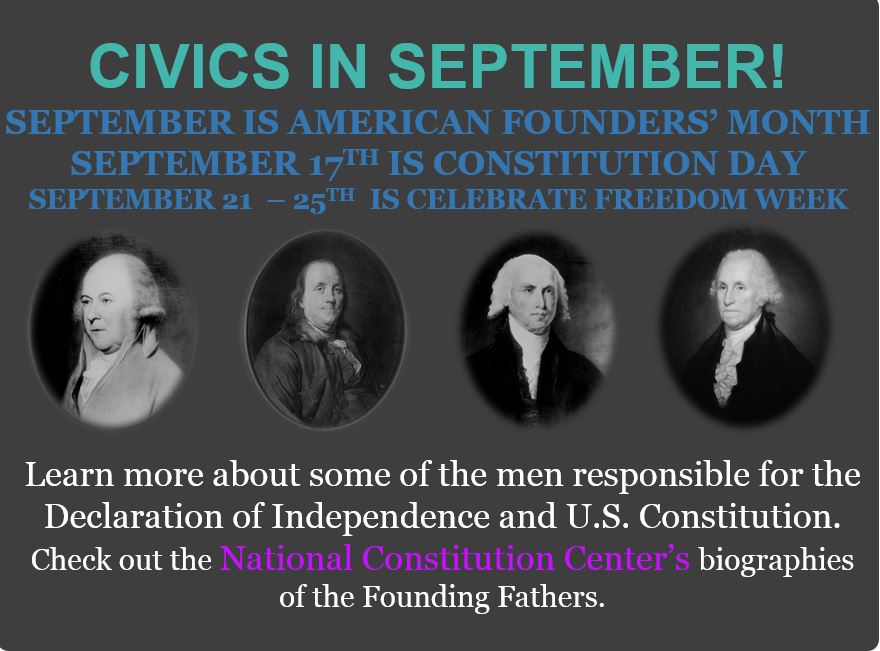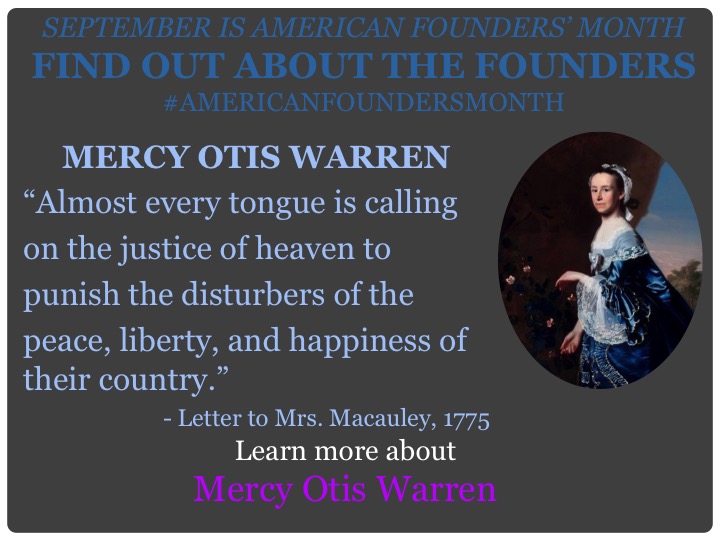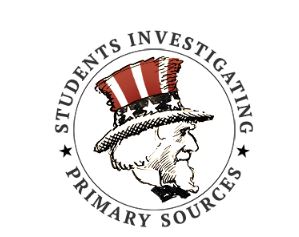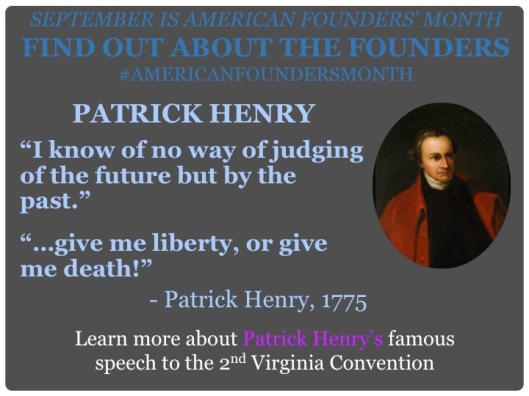
It’s Founders Month! According to the Florida Department of Education,
Section (s.) 683.1455, Florida Statutes (F.S.), designates the month of September as American Founders‘ Month and s. 1003.421, F.S., recognizes the last full week of classes in September in public schools as Celebrate Freedom Week.
So what does this mean for our schools and kids and teachers? Basically, it’s time to do some learning about the men and women who have helped shape this country. Here on our blog, we’ll be doing a brief overview of a particular Founder, Framer, thinker, or shaper of this this nation and how they made an impact.

Today, we take a look at one of the most influential of those women who played a role in the establishment and early days of the United States: Mercy Otis Warren.
Mercy Otis Warren was one of the most well-read and literate residents of Massachusetts in her day, man or woman. A playwright and a historian, an eloquent essayist and inveterate letter writer, she was one of the loudest voices speaking out against the failures and perceived tyranny of British government in Massachusetts and the other colonies.
In the face of Adams’s wrath, Warren stood firm. “It is not in the design of my historic work to write a panegyric on your life and character, though fully sensible of your virtues and your services,” she stated flatly. She observed that she had also said several favorable things (Adams was “endowed with a comprehensive genius” and “actuated by the principles of integrity”; he was also a man with “unimpeachable . . . habits of morality, decency, and religion”), but she refused to bend on political matters. Still, Adams continued his assault, writing additional letters before she had answered the previous one. Finally she just cut him off:
The lines with which you concluded your late correspondence cap the climax of rancor, indecency, and vulgarism. Yet, as an old friend, I pity you; as a Christian, I forgive you; but there must be some acknowledgment of your injurious treatment or some advances to conciliation, to which my mind is ever open, before I can again feel that respect and affection toward Mr. Adams which once existed in the bosom of MERCY WARREN.
Indeed, she was one of those Anti-Federalists who wrote in response to the Federalist Papers; using the nom de plume ‘A Columbian Patriot’, she wrote powerfully on perceived flaws in the new Constitution, and as herself to her dear friend John Adams on how he had so betrayed what they fought for. Sadly, her relationship with the Adams family never truly recovered.
You can learn more about this fascinating woman through the National Woman’s Hall of Fame.
Grab the Powerpoint slide featured in this post: Mercy Otis Warren AFM

 The Bridge Alliance and Bridge Alliance Education Fund are excited to announce the addition of Reverend F. Willis Johnson to its leadership team as Vice President of Partnerships and Programming. He rose to national prominence for his role in healing the Ferguson, MO community after the death of Michael Brown.
The Bridge Alliance and Bridge Alliance Education Fund are excited to announce the addition of Reverend F. Willis Johnson to its leadership team as Vice President of Partnerships and Programming. He rose to national prominence for his role in healing the Ferguson, MO community after the death of Michael Brown.












 Voting Rights
Voting Rights